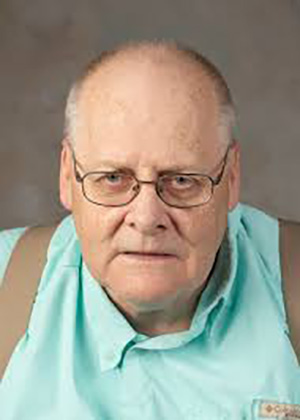OPINION —
Hartsfield-Jackson is the largest airport by number of travelers in the world. People feel they must hurry to get to their gate. Many never think of traveling leisurely. They are tied to their smartphones every minute (it seems). They do not think they can help out the public, or they just don’t want to. If they saw someone at the airport resembling Mabel “Madea” Simmons of six popular movies, they would not blink an eye.
“If you think you have witnessed a trafficking situation, keep careful track of your observations; do this especially where people gather, like at airports,” said Tyler Perry, producer and actor shown in a PSA currently running on the monitors at Atlanta’s famous airport. Perry, of course, portrayed Madea in those funny films.
State of Georgia and city of Atlanta politicians, as well as other key players in the battle against human trafficking, presented a yearly report. The event was held at the airport to symbolically close Human Trafficking Month on Jan. 31. Major airports appeal to trafficking predators (see below).
Alabama does not have a human trafficking situation as Georgia has. Nonetheless, in 2019, Gov. Kay Ivey signed into law an important bill sponsored by the Alabama Trucking Association. Ford Boswell, senior advisor for communications and marketing, was pleased that Ivey had a role in getting those changes effected.
In the Yellowhammer State, all new students studying to obtain a commercial driver’s license (CDL) have to complete trafficking awareness training. This applies whether attending a CDL trade school or a training program. Upon earning a CDL, they learn “red flags” of human trafficking.
“Unfortunately, some survivors of human trafficking still carry around the weight of a criminal record while trying to heal from the trauma they’ve experienced,” explained Georgia Attorney General Chris Carr. “We are proud to work with Georgia’s first lady, Marty Kemp, to ensure all survivors are aware of the opportunity in Georgia to wipe the slate clean and focus on healing.”
Georgia Senate Bill 425, known as “The Survivors First Act,” has remedies for individuals to clean up their criminal history in that state if they have survived sex trafficking or labor trafficking. The goal: to remove individuals’ barriers to employment, housing and other opportunities, but also to help heal the trauma they have experienced.
Andre Dickens was elected Atlanta mayor in 2021. He was a council member and a chemical engineer. There were 14 candidates, with high crime the big issue. Dickens was second, but as Felicia Moore did not achieve 50%, there was a runoff. Both Moore and Dickens are African Americans, but Dickens captured the white vote in an upset.
The Atlanta airport became part of the tapestry of the anti-human trafficking campaign organized by Dickens and Georgia First Lady Marty Kemp.
“If I remember correctly, the mayor said so proudly last year that he considered us friends,” Kemp said. “I knew then that we were going to have a great partnership, and I appreciate that.”
Ivey signed a proclamation for Human Trafficking Month last December. She noted that, among other points, “The United States government estimates that between 600,000 to 800,000 individuals are trafficked across international borders each year and exploited for forced labor and forced sexual activity.”
Dickens said, “Traffickers use violence, threats, lies or other forms of control to manipulate their victims and coerce them to acts against their will. Unfortunately, trafficking hides in plain sight. Keep careful track of your observations for the authorities to report. If the victim is in danger, call 911.”
Sex trafficking has been found in fake massage businesses, brothels, street prostitution and strip clubs. Labor trafficking has been discovered in domestic work, large farms and factories. Alabama Attorney General Steve Marshall emphasizes that, “Many times, traffickers place their victims at truck stops and outside convenience stores with high traffic.”
One of the most famous phrases from a Supreme Court Justice is “I will know it when I see it.” It is usually attributed to Justice Potter Stewart; he was referring to prostitution. The implication is not to get stuck too much with minutia when something is clear to most people.
The next time you are at Hartsfield-Jackson International Airport, don’t hurry too much without seeing what is happening outside your smartphone. You may not be able to determine if something you gaze at is human trafficking or not. Unlike Stewart, you may not be able to “know it when I see it.” But if you see something bad, and you don’t tell the authorities, not even Mabel “Madea” Simmons will join you.
Greg Markley moved to Lee County in 1996. He has a master’s in education from AUM and a master’s in history from Auburn University. He taught politics as an adjunct in Georgia and Alabama. An award-winning writer in the Army and civilian life, he has contributed to The Observer since 2011. He writes on politics, education and books. gm.markley@charter.net.

